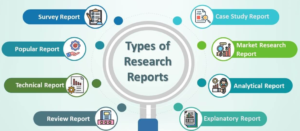The Research Clerk Agency can play a crucial role in supporting Population Census Recruitment efforts by offering a range of services aimed at recruiting and managing enumerators, supervisors, and other field staff.
Recruitment Strategy Development: Research clerks can collaborate with census authorities to develop comprehensive recruitment strategies tailored to the specific needs and objectives of the population census. This involves identifying target recruitment areas, defining recruitment criteria, and designing recruitment materials, such as job postings, advertisements, and recruitment flyers.
Candidate Sourcing and Screening: Research clerks can source potential candidates for census enumerator positions through various channels, including online job boards, social media platforms, community organizations, and professional networks. They can screen candidates based on predefined criteria, such as educational qualifications, language proficiency, data collection experience, and availability for census fieldwork.
Application Management: Research clerks can manage the recruitment process by receiving and processing candidate applications, conducting initial screenings, scheduling interviews, and communicating with candidates throughout the recruitment process. They can also track applicant data, maintain applicant databases, and generate recruitment reports to monitor recruitment progress and outcomes.
Interview Coordination: Research clerks can coordinate and conduct interviews with shortlisted candidates to assess their suitability for census enumerator positions. This may involve conducting interviews in-person, over the phone, or via video conferencing platforms. Research clerks can also administer written tests or practical exercises to evaluate candidates’ skills, knowledge, and abilities related to census data collection.
Training and Capacity Building: Research clerks can assist in organizing and delivering training programs for census enumerators and field supervisors. This includes developing training materials, coordinating training sessions, and facilitating hands-on training activities to familiarize field staff with census procedures, protocols, and technologies. Research clerks can also provide ongoing support and guidance to field staff throughout the census enumeration period.
Field Staff Management: Research clerks can manage field staff deployment, scheduling, and logistics to ensure adequate coverage and efficient data collection operations. This involves assigning enumeration areas to enumerators, monitoring fieldwork progress, resolving logistical issues, and providing support to field supervisors and enumerators as needed. Research clerks can also track field staff performance, attendance, and adherence to census protocols to ensure data quality and integrity.
Performance Monitoring and Evaluation: Research clerks can monitor and evaluate the performance of census enumerators and field supervisors throughout the enumeration period. This includes conducting periodic performance reviews, collecting feedback from supervisors and respondents, and assessing data quality and completeness. Research clerks can identify training needs, address performance issues, and implement corrective actions to improve enumerator performance and overall census data quality.
Post-Census Analysis and Reporting: After the census enumeration is complete, research clerks can assist in analyzing census recruitment and fieldwork data to evaluate recruitment strategies, identify lessons learned, and generate recruitment reports. This includes analyzing recruitment metrics, such as applicant demographics, recruitment channels, and time-to-fill positions. Research clerks can also document best practices, challenges, and recommendations for future census recruitment efforts.
The Research Clerk Agency, census authorities can streamline and optimize population census recruitment processes, ensuring the timely and effective deployment of qualified field staff to support accurate and reliable census data collection operations.










